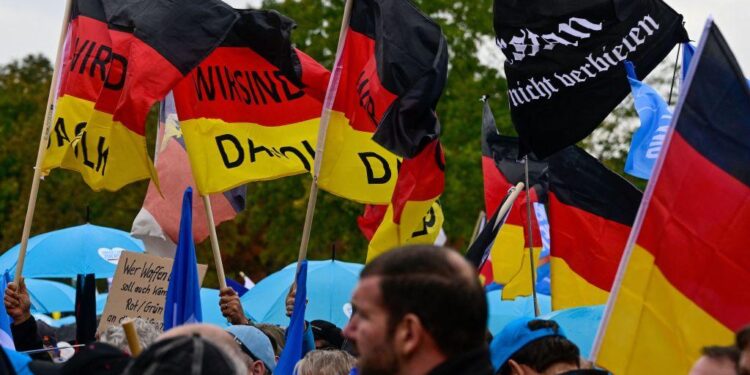Decoding the Surge of Far-Right Politics in Europe: Causes, Challenges, and Responses
Europe’s political arena has undergone significant upheaval recently, characterized by the growing prominence of far-right parties. This trend has sparked both concern and intrigue among political experts and citizens alike. As nationalist and populist factions gain momentum across various countries, a paradox emerges: these groups often thrive on anti-immigration sentiments and appeals to national identity but simultaneously wrestle with internal contradictions that threaten their sustainability. This article examines the multifaceted factors propelling far-right movements in Europe, evaluates mainstream political reactions, and considers what this means for the continent’s democratic future amid upcoming elections.
The Complex Drivers Behind Europe’s Far-Right Resurgence
The revival of far-right ideologies across European nations is rooted in an intricate mix of social unease, economic pressures, and shifting political landscapes. Traditional party allegiances have weakened as global challenges—such as migration crises and economic uncertainty—intensify feelings of vulnerability among many voters. In this context, rhetoric emphasizing national sovereignty, cultural preservation, and stringent immigration controls resonates strongly with segments of society who perceive themselves as overlooked or threatened.
A critical factor amplifying these movements is the role played by digital media platforms. Social networks have become powerful tools for far-right groups to:
- Energize their base through targeted messaging campaigns;
- Cultivate misinformation that challenges established news sources;
- Create insular online communities where extremist views are reinforced without opposition.
This digital ecosystem accelerates the normalization of radical perspectives while complicating efforts by mainstream politicians to defend democratic norms effectively.
Sociopolitical Paradoxes Fueling Far-Right Appeal Despite Economic Progress
The rise in far-right support presents a striking contradiction when juxtaposed against indicators like declining unemployment rates or steady GDP growth seen in many European countries over recent years. Beneath these positive macroeconomic trends lies persistent dissatisfaction driven by widening income disparities, cultural insecurities linked to immigration flows, and perceptions that political elites are disconnected from everyday realities.
This disconnect is particularly pronounced amid rapid urbanization trends reshaping demographic patterns across Europe. In metropolitan areas marked by increasing ethnic diversity:
- Cultural tensions emerge between long-established communities and newcomers;
- The cost-of-living crisis exacerbates financial strain on working-class families;
- Anxiety about preserving traditional identities intensifies;
- Diverse social media bubbles deepen ideological divides.
A recent Eurobarometer survey (2023) found that nearly 40% of respondents across EU member states feel “left behind” economically or culturally—a sentiment exploited skillfully by far-right parties offering seemingly straightforward solutions to complex societal issues.
Tackling Extremism Through Inclusive Policies and Community Engagements
Curbing the spread of extremist ideologies requires comprehensive strategies addressing both root causes and manifestations at community levels. Education plays a pivotal role; integrating curricula focused on critical thinking skills alongside media literacy can equip younger generations to critically assess divisive narratives encountered online or offline.
Community-driven initiatives also foster mutual understanding through:
- Cultural exchange programs: Encouraging immersive experiences that build empathy between diverse groups;
- Interfaith dialogues: Creating safe spaces for conversations bridging religious differences;
- Mental health support networks: Offering resources for individuals vulnerable to radicalization due to isolation or trauma;
| Tactical Approach | Description |
|---|---|
| Preventive Outreach | Engaging youth at risk through mentorship programs led by trusted community figures |
| Professional Development Workshops | Training educators & social workers on early detection signs related to extremism |
| Cross-Cultural Collaborations | Facilitating joint projects between different ethnic communities aimed at shared goals |















